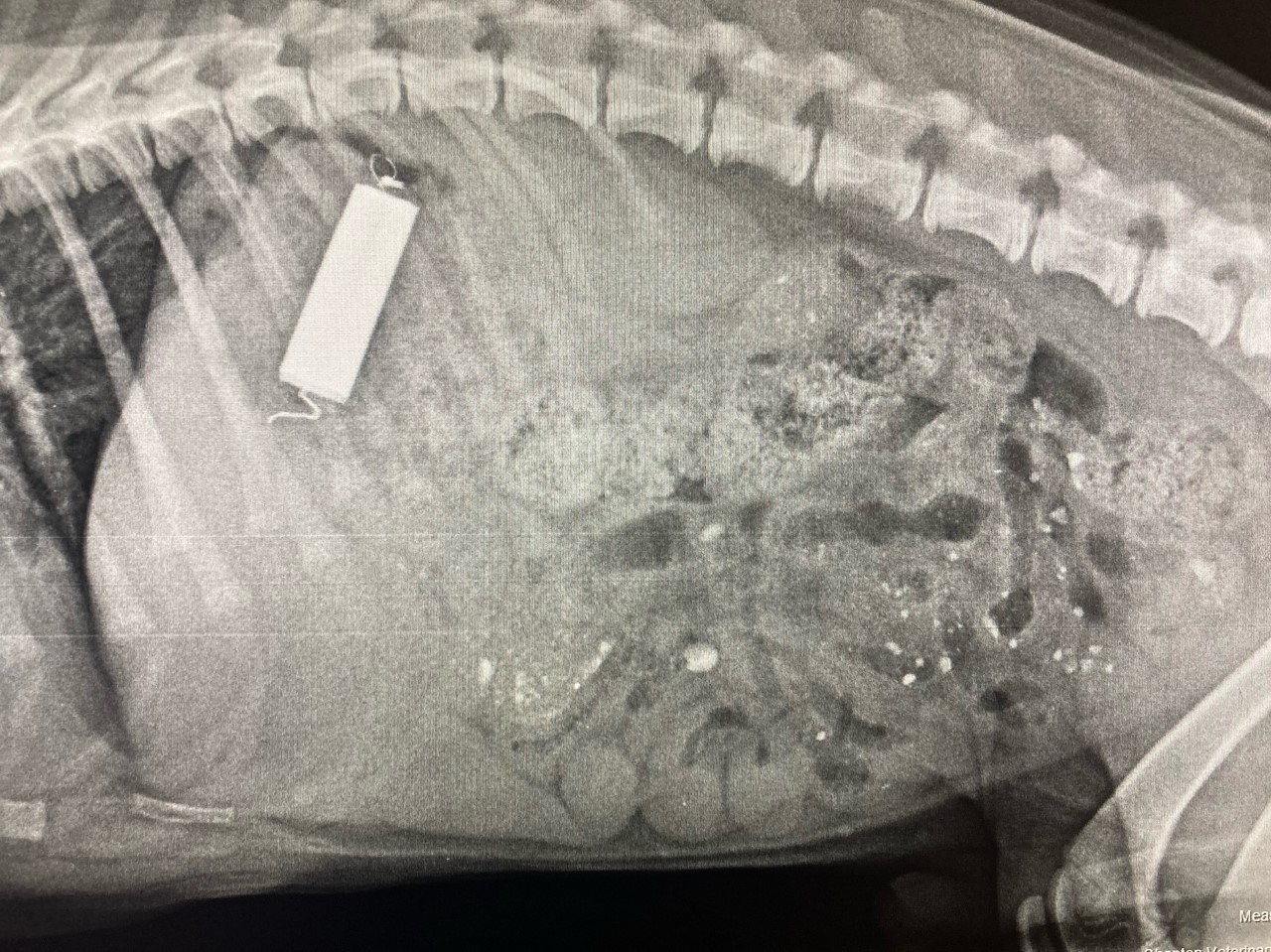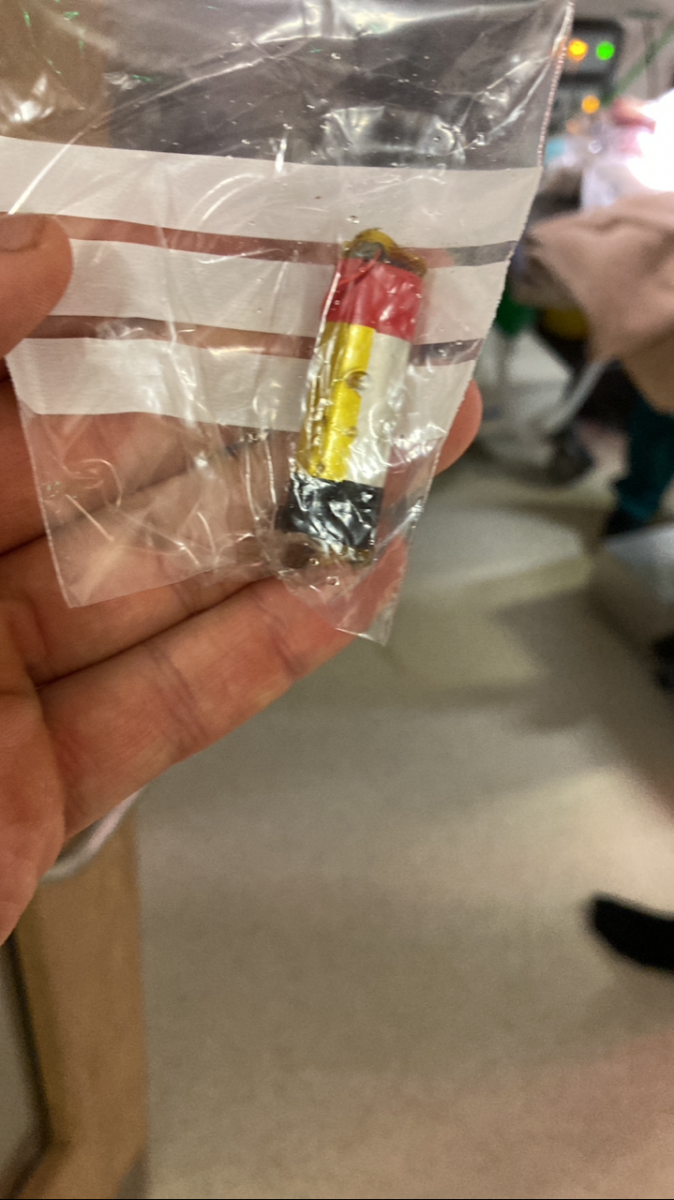
Posted By:
Everyone loves playing with and cuddling young puppies and kittens, indeed its one of the perks of our job. However, they can also be very naughty and represent a large commitment for owners, often for the next 10+ years. Whilst kittens tend to be reasonably sensible, puppies are (generally) not. They investigate everything using their mouth, inevitably leading to frequent bouts of vomiting and diarrhoea. One of the main dangers of this ‘see it and eat it’ approach is that they end up eating something dangerous, or something that may ultimately cause a blockage of the intestines. One such naughty puppy was Flash, who was seen on a Saturday when he was less than 4 months old. The owners were fairly sure he’d eaten a battery on a walk. They’d tried to get it off him before he swallowed it, but it was gone in a flash. In himself Flash was fine, in fact he seemed very proud of his achievement, but if he had swallowed a battery, it would pose a serious risk.
There are 2 broad types of batteries that animals can chew/swallow. You have the standard cylindrical AA/AAA type batteries, and you have the smaller flatter circular batteries (‘button batteries’, the kind that go in watches). The main concern with the AA/AAA type batteries is they are more likely to be chewed by the animal due to their size, releasing harmful acid or alkaline liquid which can cause oesophageal, stomach or intestinal damage and possible necrosis. In small dogs such as Flash these batteries also have the potential to cause a blockage. Whilst button batteries may also leak, they are more commonly swallowed whole. They attach themselves to the intestinal lining and create an electrical current within the intestines which damages tissue and again can cause necrosis.

Given the risks, x-rays were taken to confirm if a battery had been eaten and to see what type and where it was. An obvious AA/AAA type battery was seen in the stomach. At this point removal was needed. We do not make animals that have eaten batteries vomit because if the battery is leaking there is a risk of damaging the oesophagus on the way back up, and that is extremely serious. We opted to pass a camera (endoscope) down the oesophagus and into the stomach to visualise the battery and assess if it could be removed endoscopically. It appeared to be fully intact as far as could be seen and we were able to grasp a little bit of cable that was soldered to it and remove it via the mouth. No damage to the stomach or oesophagus was present. If there was a clear break in the battery with obvious leakage, we would have opted to operate and remove it via the stomach instead of risking the fragile oesophagus. The battery had some teeth marks in so was placed in water to look for openings in the casing. Over time a small air bubble developed at one point, suggesting a very small break in the casing. Thankfully this wasn’t enough to cause any significant damage, but if left the opening could have increased with more serious battery leakage.
The good thing about removing objects in this way (endoscopically) is that it is much less invasive than a surgery and Flash was able to go home the same day. We have removed several items in a similar fashion, including a kebab stick, a large chicken bone and a piece of razor blade! Flash made a fast and complete recovery, and as he is still a puppy, I’m sure he remains very naughty indeed! Thankfully he has not repeated this previous ‘trick’.

We all know that early detection and prompt, effective...
©2024 Shepton Veterinary Group Ltd., All rights reserved.
Privacy Policy • Terms & Conditions • Cookie Policy